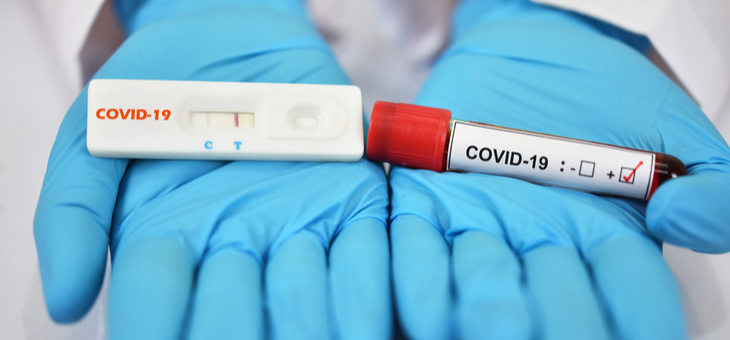Frantic Australians are purchasing dodgy COVID-19 ‘home-testing’ kits, which are being intercepted by the Australian Border Force (ABF).
The ABF has seized nearly 300 of the faulty kits since 16 March, in Perth and Melbourne.
Home Affairs Minister Peter Dutton has urged nervous citizens to avoid the temptation to import the “dangerous goods”, saying they could pose a serious risk to public health.
“Inaccurate results could prevent people from seeking the medical help they need, or alternatively, discourage people who should be self-isolating from doing so,” Mr Dutton said in a statement.
The Therapeutic Goods Administration (TGA) has declared the test kits unapproved medical devices.
In the United Kingdom, an order for 17.5 million antibody home-testing kits, ordered by Prime Minister Boris Johnson, is in doubt.
UK health secretary Matt Hancock says the tests are not yet “good enough”.
Scientists told The Guardian “no [home] test on the market has yet been shown to be sufficiently reliable”. Variations in individual responses to the virus make the implementation of a home test that will work for everyone a “considerable challenge”.
Britain does not have enough labs to mass test for coronavirus.
Australia is better off than most countries, claiming a coronavirus testing rate of 1000 per 100,000 people, but ideally, everyone would get tested for coronavirus.
As Hassan Vally, Associate Professor at La Trobe University wrote for The Conversation: “To control the spread of COVID-19, we need to identify as many people with the virus as possible. If we know who has it, we can isolate them so they can’t infect others and quarantine their close contacts in case they’ve already been infected.”
Widespread testing reveals those who have already been infected, enabling authorities to better determine who needs to isolate.
But there are millions of us and only so many tests and overworked medical angels to perform them. Priorities need to be set.
So, who gets tested first?
The Federal Government guidelines are straightforward: no one without symptoms will be tested. Beyond that, you will be tested if you have a fever or respiratory symptoms and meet at least one the following criteria:
- you have returned from overseas in the past 14 days
- you have been in close contact with someone diagnosed with COVID-19 in the past 14 days
- you travelled on a cruise ship (either passenger or crew) in the 14 days before developing symptoms
- you are a healthcare, aged care or residential care worker
- you have lived in an area where there is a higher risk of community transmission, as defined by the local public health unit
You should also be tested if you meet all of the following criteria:
- you are in hospital
- you have fever and serious respiratory symptoms
- there is no other clear cause of the symptoms.
People in high-risk settings will be tested if there are two or more people with fever and respiratory symptoms in the setting.
High-risk settings include:
- aged and residential care facilities
- detention centres or correctional facilities
- boarding schools
- military bases (including navy ships) that have live-in accommodation
- rural and remote Aboriginal and Torres Strait Islander communities
State by state
The guidelines above apply across Australia, but some states have wider criteria for tests.
- In NSW, GPs have discretion to test any patient with COVID-19 symptoms and communities where there have been local coronavirus transmissions.
- In Western Australia, patients will be tested if they have a temperature of 38 degrees Celcius or over and signs of a respiratory infection.
- South Australia is testing anyone who has symptoms and visited Adelaide airport in the past 13 days. This follows several cases among baggage handlers there.
- Victoria tests every fifth patient at random at some centres, as part of its research efforts.
If you don’t have a regular GP or want to discuss your concerns, call the National Coronavirus Helpline on 1800 020 080. You will be given information on where the closest COVID-19 testing clinic is and detailed advice on whether you should be tested.
Are you clear on testing protocols?
If you enjoy our content, don’t keep it to yourself. Share our free eNews with your friends and encourage them to sign up.
Related articles:
What changes in the travel industry mean for you
Count your drinks in self-isolation
How to train your brain in a crisis

